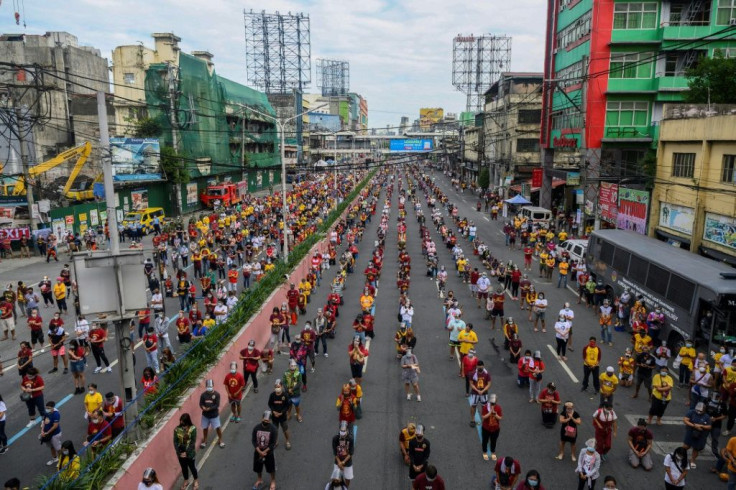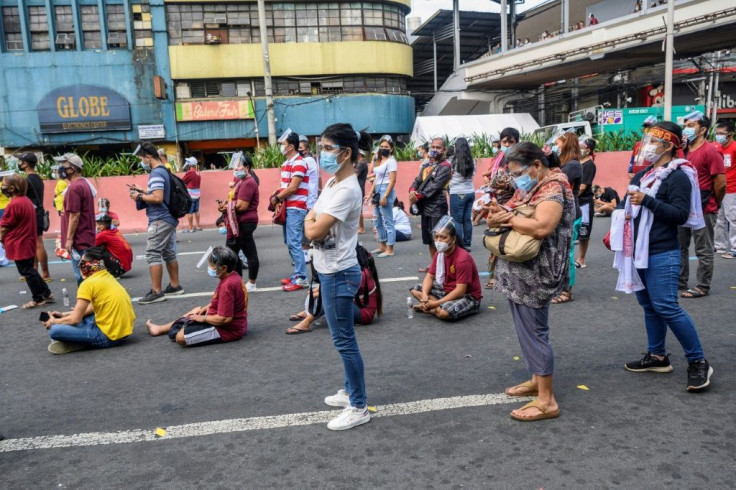Devotees Flock To Philippine Church For Miracle From Catholic Icon
Thousands of devotees thronged a church in the Philippine capital Saturday for a glimpse of a centuries-old statue of Jesus Christ believed to have miraculous healing powers, after an annual Catholic parade was cancelled due to Covid-19.
Ignoring official pleas to stay home because of the virus threat, Catholics wearing masks and face shields gathered along an avenue outside the Quiapo Church in Manila where the first of 15 masses for the feast of the Black Nazarene began before dawn.

People patiently waited to enter the church or watched the back-to-back masses broadcast live on large screens outside.
The orderly scenes were in contrast to the normal frenzied procession involving hundreds of thousands of pilgrims risking life and limb to touch the icon in the belief it can heal the sick.
The life-sized statue -- brought to the Philippines in the early 1600s when the country was a Spanish colony -- is traditionally pulled through the packed streets of the capital on a float in one of the world's biggest displays of Catholic devotion.

But fearing it could turn into a virus super-spreader event this year, authorities cancelled the parade for the first time in decades and instead urged people to watch the masses livestreamed on Facebook.
Worshippers attending the church were forced to look but not touch the icon, which was placed out of reach on the balcony above the entrance.

For many, that was enough.
"I'm so happy with what I'm seeing here now," said George Arevalo, 32, after attending mass, where social distancing rules have limited the congregation to about 400 people for each service.
Arevalo said he touched the statue for the first time during the 2017 procession, an act he believes ensured his epileptic wife, who was pregnant at the time, was able to deliver a healthy baby.

The risk of catching the coronavirus, which has infected nearly half a million people in the country, did not bother Marlene Ordiales, 58, who believed the Black Nazarene would protect her.
"I don't mind the pandemic. I leave it up to him," Ordiales told AFP as she waited to enter the church.
Several thousand police were deployed to ensure social distancing in the devout crowd. Manila police chief Brigadier General Leo Francisco estimated hundreds of thousands had participated by mid-afternoon.
About 80 percent of Filipinos consider themselves to be Catholic.
The statue is called the Black Nazarene because of its charred colour, believed to have occurred when it survived a fire aboard a ship en route from Mexico.
In the weeks leading up to Saturday, it was taken to several churches around the city to give devotees the opportunity to see it in the hope of avoiding a huge crowd on feast day.
But many, like Jasper De Guzman, were determined to take part.
"We shouldn't be afraid because Jesus is with us," the 47-year-old said.
"The pandemic can't stop us."
© Copyright AFP 2024. All rights reserved.





















